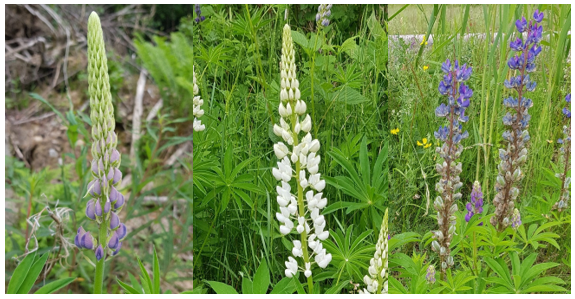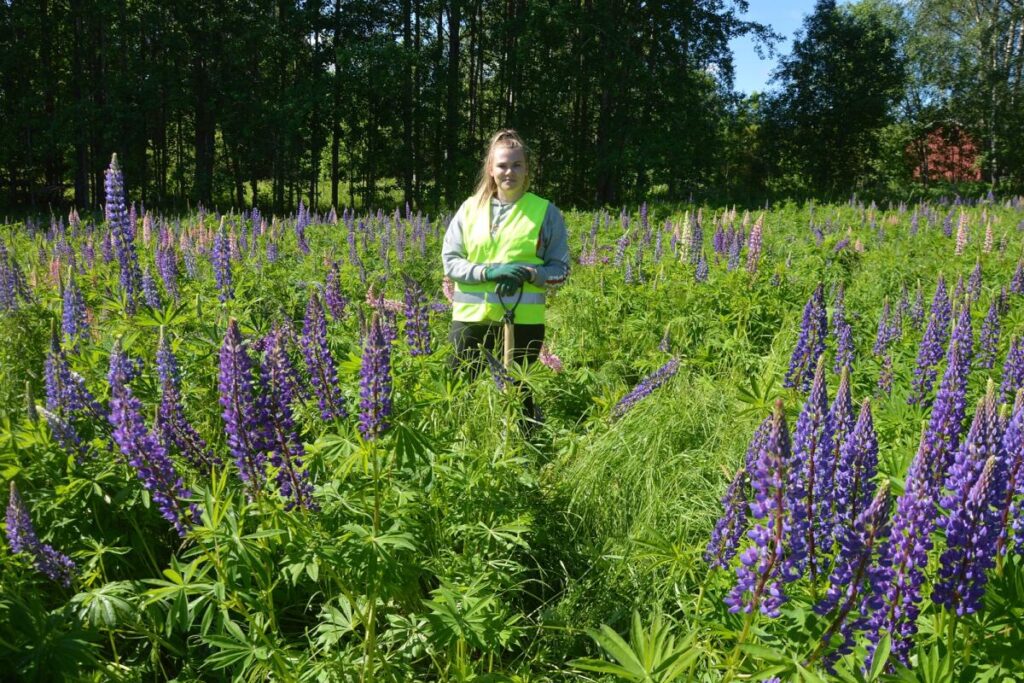New paper out about the optimal mowing time for the invasive Garden lupine based on species phenology and nutrient dynamics
Posted by Louis Addo | PapersElin Blomqvist and Lutz Eckstein are main and senior authors, respectively, of a paper that studied the links between phenology and biomass and nutrient dynamics in the invasive herb Lupinus polyphyllus to identify the optimal timing for control mowing along road verges. The paper, which has recently been published open access in the journal Basic and Applied Ecology (https://doi.org/10.1016/j.baae.2025.02.006), was a cooperation between Karlstad University and Justus Liebig University Giessen (Germany: Yves P. Klinger and Till Kleinebecker).
The main findings of the study were that biomass and nutrients of Lupinus polyphyllus in the roots are lowest during the flowering phase and that shoot-to-root ratios peak during flowering and the seed ripening phase. Therefore, control mowing during flowering and before seed dispersal will weaken the plants the most. Generally, the planning of control management of this invasive species by mowing should be based on the species’ phenology.






